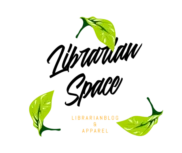Obtaining a Master of Library and Information Science (MLIS) is a huge plus for librarians. This leads to many job openings in the library sector and allied areas. An MLIS Degree is an essential qualification as it is required for various roles in this field.
With this degree, librarians can improve their ability to oversee the resources and services of the library. If you want to progress in your librarianship, it’s a good investment. So, if you are aiming to ace this degree, let’s get right in to know everything about it!
Library Science Masters: What Is It?
An MLIS is necessary for most library jobs in the U.S. It is also known as a Master of Science in Library and Information Science. Even though it is still new, it is currently the benchmark degree for librarians.
Persons with an MLIS possess the ideal qualifications to fill different positions within libraries and information centers. Cataloging, IT, and library management are some of these disciplines. It is important to get this education to be able to effectively manage library resources and services.
However, this program that you choose must be approved by the American Library Association. The exact name of the degree can differ between programs, such as Master of Librarianship or Master of Information Studies. This means that even if their nomenclature has changed, the goal remains to educate future professionals in library and information sciences.

Everything You Need To Know About The MLIS Degree
Professionals having a Master of Library and Information Science degree are better positioned to lead information management projects, while at the same time demonstrating creativity, ethicality, and competency.
They learn how to develop various systems as well as launch and market them. These technologies help in creating, organizing, managing, preserving, and using information and collections more effectively.
People who have MLIS degrees work in a wide range of diverse fields. Libraries are just some places where you can find them among others such as museums, hospitals, and companies for example.
The American Library Association underscores multiple aspects related to librarianship. Not working merely within libraries but being found anywhere else depicts their varied roles through performing numerous tasks.
Such diversity speaks volumes regarding how versatile the MLIS degree is. It’s keeping up with the consistent demand for information that distinguishes librarianship from its traditional confines represented by brick-and-mortar libraries.
Where Can You Get A Master’s Degree In Library Science?
Library schools that are accredited provide a Master of Science degree in library science. The ALA has accredited sixty-five programs at sixty-one different universities in the US, Canada, and Puerto Rico.
If you study at any one of these recognized schools, you will be getting a quality education that meets professional standards. Additionally, ALA also covers international library science degree programs.
ALA website provides many links for prospective students. The publication is titled “Guidelines for Choosing a Master’s Program in Library and Information Studies”. It will help you decide whether an associate’s or master’s degree would be better depending on your aspirations in life.
Several reputable colleges also offer online courses. Online classes can help you acquire a degree without leaving the house.
Those requiring a certain number of credits or hours might have varying requirements about their degrees: some may offer their entire course load electronically while others may require students to meet physically or regionally at least once during the program.
Where Can I Get MLIS Degree Online?
Getting an online master library science can be a good choice if you can’t make time for on-campus programs. Therefore, here are some programs for online MLIS degree
Syracuse University
Online Master’s of Library and Information Science is offered at Syracuse University. The program emphasizes practical experience in information management. Seven different career tracks are available to students including Digital Curation, Youth Services, User Services, and others.
It usually takes two years for the students to finish 36 courses in the program. Among them, one should highlight participation in a residence workshop as part of a non-credit Graduate Immersion Milestone event.
Thus, there are four possible cohort start dates which gives participants more flexibility. If you want a flexible online learning environment where you can specialize in many areas of library and information science then this program is for you.
University Of Illinois Urbana Champaign
The University of Illinois Urbana Champaign offers reputable Master’s programs in the Library & Information sciences field (School name). Students can either choose courses based on their specific interests or tailor degrees around desired careers.
The field has six distinct career tracks that represent different perspectives within librarianship or related fields. Two required courses out of 40 credits constitute core curriculum requirements for graduation History, and African Studies among other fields offer joint master’s programs among many others.
They offer multiple options which will be a perfect fit for someone looking for an all-inclusive library science education.
Rutgers University
Rutgers University offers a comprehensive Master’s in Information Science program. The fundamentals of information science and library science form the basis of this program.
Archives, data science, and school librarianship are some of the areas where students can choose to specialize. You can also create your unique path. Attending full-time, one can finish 36 credits of the program within a year and a half to two years or part-time in 2-3 years.
Regarding online programs, they have small populations ranging from an average number of ten up to twenty-two provided you attend classes. This is why we accept applications all year round with three different start dates: fall, spring, and summer.
Those who want flexible and customized programs in Library Science should consider this curriculum.
University Of Tennessee, Knoxville
The University of Tennessee, Knoxville is offering a Master of Science in Information Science program. This course of study prepares students for positions in the public and private sectors.
Many possible careers can be pursued by a student such as digital collections and user experience skills to name a few. The 36-hour program is designed around individual interests. One significant aspect of the practicum program is that it provides students with real-world work experience.
Options include taking some courses on campus or all online. Throughout their time at school, each student has an advisor among the faculty members serving as his or her mentor. If you want to learn more about information sciences and get practical experience, this course is best suited to you.

Frequently Asked Questions (FAQs)
What does a master librarian do?
Master librarians are persons who research, index, and write information. Also, education, cataloging, and collection development can be included in the responsibilities of a master librarian. Digital information, health sciences, law, and culture are some of the possible areas for specialization.
What is the main role of librarian?
A librarian’s job is to make sure that the library’s collection and information are easily accessible. These responsibilities extend to directing library staff, designing instructional programs, managing databases, and curating resources. This helps the patrons of libraries locate quickly and efficiently all the relevant information they need to facilitate learning, studying, or exploring.
Why is it important to have a librarian?
To promote literature appreciation and enhance digital literacy skills librarians have an important role to play. They help communities by making reliable data readily available through user-friendly means or approaches. In many ways, these professionals are invaluable resources that assist their societies in making sense of research works, projects as well as school assignments.
What do librarians do daily?
Assisting users with research; creating and maintaining databases of library materials; and organizing them for convenient access characterize what librarians do most days at work. Librarians stay up-to-date with new publications by reading catalogs and reviews in addition to announcements from publishers; this also involves reviewing search results along with reference sources.
Bottom Line
If you are thinking of pursuing an MLIS degree, choose schools that are accredited by the American Library Association. Accreditation ensures that programs meet high standards, signifying excellence.
In America, there are over fifty different online library science programs accredited through ALA at the master’s level. Such programs provide flexibility to those students with jobs or any other engagements since they study at their own pace.

